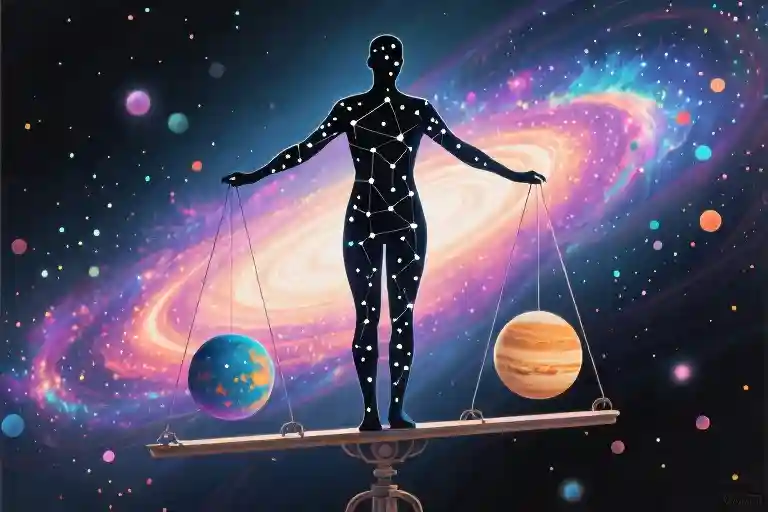The conversation started casually enough—my friend dismissing philosophy as something confined to dusty textbooks and lecture halls. “It’s all theories and dead white men,” they said, swirling their coffee. I leaned forward, recognizing a familiar frustration. But what if I told you philosophy breathes through your headphones every day?
Music has always been my gateway to existential questions. Where academic texts can feel like deciphering hieroglyphics, a three-minute song can distill complex ideas into visceral emotion. That melody haunting your commute? It might be wrestling with the same dilemmas Sartre pondered. The lyrics stuck in your head? They could mirror Camus’ absurdist conclusions.
This isn’t about finding hidden messages. It’s recognizing how effortlessly music embodies philosophical inquiry—through Radiohead’s alienation anthems, Prince’s spiritual yearning, or Beethoven’s wordless meditations on mortality. The artists rarely set out to write treatises, yet their creations become vessels for timeless human concerns: Who am I? Does my life matter? How should we live?
Over the next ten songs, we’ll explore how:
- Existential anxiety pulses through Radiohead’s “Creep”
- Moral ambiguity thrives in Kanye West’s sonic labyrinths
- Beethoven’s piano sonatas articulate what words cannot
You won’t need a philosophy degree—just the willingness to listen differently. Because sometimes the deepest truths come dressed in guitar riffs and falsetto harmonies.
When the Self Becomes the Other: Existential Anxiety in Radiohead’s ‘Creep’
That opening guitar riff hits like a sudden moment of self-awareness in a crowded room. Radiohead’s 1992 breakout single ‘Creep’ distills existential dread into three minutes of raw vulnerability – the kind that makes you simultaneously want to hide and be seen. Beneath its grunge-era surface lies one of pop music’s most potent explorations of what Jean-Paul Sartre called ‘the look’ – that paralyzing moment when we perceive ourselves through others’ eyes.
The Anatomy of Alienation
Thom Yorke’s lyrics trace the contours of modern alienation with surgical precision. The now-iconic chorus (‘I want a perfect body / I want a perfect soul’) captures the fundamental human disconnect between our idealized selves and lived reality. Each verse builds this tension through visceral imagery – the ‘angel’ who makes the narrator feel like an intruder in his own skin, the desperate wish to be ‘special’ while recognizing his own ‘weirdness.’
This isn’t just teenage angst; it’s existentialism set to music. The song’s power comes from its dual perspective – we hear both the internal monologue (‘What the hell am I doing here?’) and the imagined external judgment (‘You’re so fucking special’). In philosophical terms, Yorke embodies what Sartre described in Being and Nothingness: the moment when another person’s gaze turns us from a free subject into a fixed object. Suddenly, we’re not just existing – we’re watching ourselves exist through someone else’s potentially disapproving eyes.
The Paradox of Recognition
What makes ‘Creep’ philosophically rich is its exploration of recognition’s double-edged sword. The narrator simultaneously craves and fears being seen. The song’s climax (‘She’s running out the door…’) delivers the crushing realization that authentic connection requires vulnerability we’re not always prepared to give. This mirrors existentialism’s central tension – we long for meaning through others, yet that very connection threatens our sense of autonomous selfhood.
Musically, the contrast between quiet verses and explosive choruses physically manifests this internal conflict. Jonny Greenwood’s dissonant guitar crashes function like sonic representations of existential rupture – moments when our carefully constructed self-image shatters against reality. The song’s structure itself becomes a metaphor for what philosopher Martin Heidegger called ‘thrownness’ – that unsettling awareness of being abruptly confronted with our own existence.
From 1993 to TikTok: Why ‘Creep’ Still Resonates
Nearly three decades later, ‘Creep’ enjoys an unlikely renaissance among Gen Z listeners. Its enduring appeal speaks to how effectively it articulates a universal human experience – what psychologists now call ‘imposter syndrome’ but philosophers have long recognized as the fundamental anxiety of self-conscious existence. In our age of curated Instagram personas and performative authenticity, the song’s raw vulnerability feels almost radical.
The track’s cultural journey also reflects an interesting philosophical evolution. Originally dismissed by critics as juvenile self-pity, it’s now recognized as articulating what Albert Camus might call ‘the nakedness of man faced with the absurd.’ That shift mirrors how existentialist thought moved from marginal to mainstream – what seemed like navel-gazing in the 1940s became recognized as profound insight into the human condition.
Practical Philosophy Through Headphones
For those new to existentialism, ‘Creep’ offers something no textbook can – an immediate, visceral understanding of complex concepts. Next time you listen, try this philosophical exercise:
- Identify the gaze: When does the song make you aware of being observed?
- Notice the alienation: Which lyrics highlight the gap between self and world?
- Feel the freedom: Paradoxically, the song’s honesty about inauthenticity becomes an authentic act
Like all great philosophical art, ‘Creep’ doesn’t provide answers – it sharpens the questions we ask ourselves. In doing so, it transforms what could be solitary anguish into a strangely comforting shared experience. As the final feedback fades, we’re left with what might be existentialism’s ultimate lesson: recognizing our ‘creepiness’ is the first step toward authentic being.
The Piano Man’s Temporary Salvation
Billy Joel’s Piano Man often gets mistaken for just another catchy tavern anthem. But lean closer to those ivories – beneath the singalong melody lies one of popular music’s most poignant meditations on art’s fleeting power to soothe existential wounds.
The Bar as a Canvas of Quiet Desperation
That opening harmonica wheeze transports you directly to the dim-lit bar Joel immortalized. You can practically smell the stale beer and feel the varnish peeling off the piano as he sketches his gallery of broken dreamers:
- The divorced realtor “sharing a drink called loneliness”
- The ex-sailor drowning memories in gin
- The aspiring novelist feeding the jukebox with quarters
These characters don’t converse – they orbit each other like Edward Hopper’s Nighthawks, united only by their silent bargain with the piano man: Play us something to make us forget, just for tonight.
Schopenhauer in a Whiskey Glass
When Joel sings “It’s a pretty good crowd for a Saturday” with that ironic lilt, he channels Arthur Schopenhauer’s view of art as temporary respite from life’s suffering. The German philosopher argued music and art don’t solve our problems – they simply suspend them, like ice cubes melting in a tumbler of cheap whiskey.
Notice how the song’s structure mirrors this philosophy:
- Verse (Problem): Each character’s unspoken anguish
- Chorus (Relief): The communal singing moment
- Return (Reality): “The piano sounds like a carnival” – the illusion fades
That heartbreaking line “They’re sharing a drink they call loneliness / But it’s better than drinking alone” distills Schopenhauer’s entire aesthetic theory – art makes suffering bearable by making it communal.
The Last Call of Meaning
As the final chords fade, Joel leaves us with the bartender’s existential question: “What brings you to this existential dive bar on a Saturday night?” The song’s genius lies in making us all temporary residents of that philosophical limbo – where for three minutes and thirty-nine seconds, we believe in the redemptive power of a melody.
Fun exercise: Next time you hear Piano Man, imagine Schopenhauer nursing a beer in the corner booth, nodding along to the chorus. Then ask yourself: What’s your equivalent of Joel’s piano – that creative outlet that briefly lifts life’s weight?
The Moral Void in a Godless World: Dissecting ‘No Church in the Wild’
Few songs capture the philosophical turbulence of our era as starkly as Jay-Z and Kanye West’s No Church in the Wild. This haunting collaboration with Frank Ocean doesn’t just entertain—it interrogates. From its opening lines, the track plunges us into a post-theistic landscape where traditional moral compasses spin wildly, leaving us to ask: What anchors right and wrong when divine authority crumbles?
Lyrical Philosophy: From Dostoevsky to the Digital Age
The chorus alone reads like a modern philosophical treatise:
“Human beings in a mob / What’s a mob to a king? / What’s a king to a god? / What’s a god to a non-believer / Who don’t believe in anything?”
This cascading series of questions mirrors Russian novelist Fyodor Dostoevsky’s famous warning in The Brothers Karamazov: “If God does not exist, everything is permitted.” Yet where Dostoevsky framed this as a cautionary tale, the song’s writers embrace it as liberation. Consider the provocative line:
“We formed a new religion / No sins as long as there’s permission”
Here lies the crux of moral philosophy in the 21st century—the transition from externally imposed ethics to self-determined values. The song’s title itself, No Church in the Wild, becomes a powerful metaphor for this shift. Churches represent structured belief systems; the wild symbolizes uncharted moral territory. What emerges isn’t chaos, but a raw, Nietzschean opportunity to “become who you are.”
The Sensory Experience of Nihilism
Musically, the track mirrors its philosophical content through:
- Bassline as moral vacuum: The rumbling low frequencies simulate the ground giving way beneath traditional values
- Frank Ocean’s falsetto: His ethereal vocals represent the lingering human longing for transcendence
- Industrial samples: Mechanical sounds reflect our increasingly secular, technology-driven world
This multi-layered approach creates what I call “philosophical synesthesia”—where sound, idea, and emotion fuse into a single experience. During one particularly intense listening session, I visualized the song as a neon-lit moral crossroads, where street signs glow with philosophical questions instead of directions.
📜 Philosophy Toolkit: Nietzsche’s Will to Power
Friedrich Nietzsche’s Beyond Good and Evil (1886) foreshadowed this moral landscape:
“When one gives up the Christian faith, one pulls the right to Christian morality out from under one’s feet.”
Key concepts from this work that resonate with the song:
- Master vs. slave morality: The track embodies Nietzsche’s critique of religious ethics as life-denying
- Self-overcoming: Jay-Z’s verse (“Drug dealer chic”) demonstrates creating meaning through self-definition
- Perspectivism: The song’s shifting viewpoints mirror Nietzsche’s rejection of absolute truths
Why This Matters Now
In an age of:
- Cancel culture debates
- AI ethics dilemmas
- Political polarization
No Church in the Wild offers more than musical brilliance—it provides a framework for navigating moral complexity. The song doesn’t advocate amorality, but rather acknowledges the terrifying freedom of crafting personal ethics.
Like existentialist philosophers before them, these artists remind us: With great moral autonomy comes great responsibility.
Your Turn: The Playlist of Personal Ethics
I often wonder—what songs would soundtrack humanity’s next moral revolution? Here’s my challenge to you:
- Pick one song that challenges traditional morality
- Identify its core philosophical question
- Share in the comments using #WildMorality
*(My current contender: Kendrick Lamar’s *FEAR.* with its raw examination of survival ethics.)*
As we await Part 2 of this series (exploring feminism in Beyoncé’s Lemonade), remember what this track teaches: philosophy isn’t confined to lecture halls—it pulses through our playlists, waiting to be decoded.
“Reflection” — Existentialism 101: Mirrors and Bad Faith
Few songs capture the raw tension between societal expectations and authentic selfhood as powerfully as Lea Salonga’s Reflection from Disney’s Mulan. This isn’t just a ballad about identity—it’s a masterclass in existential philosophy set to music.
From the first trembling notes, we’re plunged into Mulan’s world of mirrors and masks, where Jean-Paul Sartre’s concepts of “bad faith” and “the gaze” play out in heartbreaking clarity.
The Mirror as Existential Battleground
That iconic opening line—“Look at me, I will never pass for a perfect bride or a perfect daughter”—immediately establishes the central conflict: the chasm between external performance and internal truth.
The mirror here isn’t just reflecting Mulan’s appearance; it’s exposing what Sartre called being-for-others—the version of ourselves shaped by others’ expectations. When she sings “Why is my reflection someone I don’t know?”, we hear the dissonance that occurs when societal roles (daughter, bride) override personal authenticity.
This isn’t mere teenage rebellion—it’s the fundamental human struggle between:
- Being-for-itself (our free, authentic self)
- Being-for-others (the constrained version society demands)
Bad Faith in a Disney Ballad
Sartre’s concept of bad faith—self-deception to avoid the anxiety of freedom—plays out vividly in the lyrics. Consider these philosophical gut-punches:
- “If I wear a mask, I can fool the world”
- The literal makeup mirrors how we “cosmetically” alter our personalities to fit in
- Echoes Sartre’s warning: “Hell is other people” (when we let their perceptions define us)
- “But I cannot fool my heart”
- The body’s visceral rebellion against inauthenticity
- What Heidegger called Angst—that unease signaling we’re living falsely
- “Must there be a secret me I’m forced to hide?”
- The crushing weight of societal facticity (immutable circumstances like gender roles)
- Simone de Beauvoir would call this the “second sex” dilemma
The Price of Authenticity
What makes Reflection philosophically profound is its refusal to offer easy solutions. The bridge presents an existential dilemma still relevant today:
“If I were truly to be myself, I would break my family’s heart.”
This isn’t just family drama—it’s the universal human paradox:
- Conformity → Discomfort (living a lie)
- Authenticity → Anxiety (facing freedom’s consequences)
Modern psychology calls this self-discrepancy theory; existentialists call it the human condition. The song’s genius lies in making these abstract concepts visceral through Mulan’s trembling vibrato and the orchestration’s swelling tension.
Your Turn: Share Your “Mask Moment”
We’ve all had moments like Mulan’s—times when the reflection didn’t match how we felt inside. Maybe it was:
- Laughing at an offensive joke to fit in
- Downplaying your passions to seem “professional”
- Pretending to share others’ beliefs to avoid conflict
Which lyrics from Reflection resonate most with your experiences? Tag your response with #PhilosophyInMusic—I’ll feature the most thought-provoking stories in next month’s newsletter.
Pro tip for writers: Try using this song as a character development tool. When creating internal conflict, ask: “What mask is my character wearing, and what would happen if it slipped?” (This technique helped shape three characters in my upcoming novel.)
Philosophy Cheat Sheet
For those who want to dive deeper
- Key Concept: Bad Faith (Sartre)
- Pretending you don’t have choices to avoid responsibility
- Example: “I have to work this job” vs. “I choose this job because…”
- Read Next: The Second Sex by Simone de Beauvoir
- Explores how societal expectations become “facticity” for women
- Modern Parallel: Brené Brown’s research on authenticity vs. belonging
- Spoiler: True belonging requires showing up as your real self
Bohemian Rhapsody: A Philosophical Opera in Three Acts
Freddie Mercury’s masterpiece unfolds like a Greek tragedy set to a rock symphony. What begins as a tender piano ballad morphs into confessional metal before ascending to choral transcendence – mirroring philosophy’s journey from self-doubt to liberation. This six-minute odyssey contains more existential weight than most academic treatises.
Act I: Confession (“Mama, just killed a man…”)
The opening verses present philosophy’s most haunting question: how do we live with irreversible choices? Mercury’s trembling vibrato embodies what Kierkegaard called “the dizziness of freedom” – that paralyzing moment when we realize our actions define us.
The lyrics’ biblical imagery (“Put a gun against his head”) transforms personal guilt into universal human condition. Notice how the music mirrors philosophical tension:
- Piano arpeggios = racing thoughts of regret
- Sudden silence after “life had just begun” = existential void
- Dissonant harmonies = cognitive dissonance between self-perception and action
Act II: Trial (“I see a little silhouetto of a man…”)
The operatic midsection becomes a surreal courtroom where Mercury stands trial before his own psyche. Scaramouche and Galileo represent warring internal voices – the mocking jester versus the rational scientist. This internal dialogue echoes Freud’s id/ego/superego model, set to Queen’s trademark stacked harmonies.
Key philosophical motifs:
- “Bismillah! We will not let you go” – The illusion of external control (vs. Sartre’s radical freedom)
- “Beelzebub has a devil put aside for me” – Projecting responsibility onto cosmic forces
- The explosive “Mama mia” cries – Raw emotional truth breaking through intellectual defenses
Act III: Liberation (“Nothing really matters…”)
The resolution channels Camus’ absurd hero – embracing meaninglessness as freedom. Mercury’s soaring falsetto on “Any way the wind blows” doesn’t signal resignation, but rather Nietzschean amor fati (love of fate). The musical progression from minor to major key mirrors existentialism’s ultimate revelation: we create meaning through acceptance.
The Absurd Hero’s Anthem
Few artworks capture Camus’ philosophy like Bohemian Rhapsody’s final moments. The protagonist (like Sisyphus) finds purpose not despite his struggles, but through them. Mercury’s genius lies in making this profound realization danceable – turning metaphysical angst into a communal celebration of human resilience.
Fun philosophical exercise: Listen while reading Camus’ The Myth of Sisyphus. Note how both works:
- Begin in despair
- Progress through irrational logic
- Arrive at joyful defiance
This song shaped my novel’s protagonist – a man who, like Mercury’s creation, must sing his truth even when no one understands the lyrics. What fictional or real-life characters does Bohemian Rhapsody make you think of?
How These Songs Shaped My Book
As I reflect on this musical journey through philosophy, I realize these songs didn’t just inspire this article—they’ve fundamentally shaped the novel I’m currently writing. Each track left its fingerprint on my creative process, helping me build characters, craft dialogues, and establish atmospheric scenes that pulse with philosophical undercurrents.
The Soundtrack to My Writing Process
When developing my protagonist, I kept returning to Radiohead’s Creep. That raw vulnerability in Thom Yorke’s voice became the blueprint for my main character’s existential crisis—that painful awareness of being simultaneously too much and never enough. The novel’s opening scene practically wrote itself while this song played on loop, its haunting chords mirroring my character’s first moment of self-realization.
Jay-Z and Kanye’s No Church in the Wild became the anthem for my antagonist’s worldview. The moral ambiguity in those lyrics helped me shape a villain who genuinely believes he’s creating a new ethical framework. I’d listen to the track before writing his scenes, letting that bassline fuel his Nietzschean monologues about forging meaning in a meaningless world.
Musical Moments in the Narrative
There’s a pivotal scene where my protagonist stares into a mirror—a direct nod to Mulan’s Reflection. I must have played that Disney ballad fifty times while refining that passage, ensuring every sentence carried that same gut-punch of dissonance between inner truth and outward presentation. Readers will never hear the song in the text, but I hope they’ll feel its emotional resonance.
For the novel’s climax, I borrowed the structural genius of Bohemian Rhapsody. Like Queen’s masterpiece, the final chapters shift between confession, chaos, and catharsis. My editor remarked how unusually musical the pacing felt, and I just smiled—Freddie Mercury had been my invisible co-writer all along.
Synesthetic Storytelling
My synesthesia transformed The Weeknd’s Faith into actual prose. Those teal and maroon hues I see when listening? They became the color palette for key scenes. The way the song’s bridge feels like free-falling became a physical sensation I gave my protagonist during his breakdown. It’s proof that philosophy in music isn’t just conceptual—it can manifest as tangible creative fuel.
Your Turn: The Soundtrack Continues
Now I’d love to hear from you—what songs would soundtrack your life’s philosophical moments? Share your personal “philosophy playlist” in the comments below. Your suggestions might just inspire my next book chapter (with credit, of course).
For those curious about how these musical philosophies translate to fiction, join my monthly newsletter. You’ll get exclusive peeks at how songs like Moonlight Sonata influence scene moods, and how Prince’s Purple Rain inspired my book’s most spiritual passage. The next edition includes a free downloadable worksheet: Build Characters Using Your Favorite Songs.
Subscribe to the newsletter here | Pre-order the novel here
“After silence, that which comes nearest to expressing the inexpressible is music.” — Aldous Huxley





